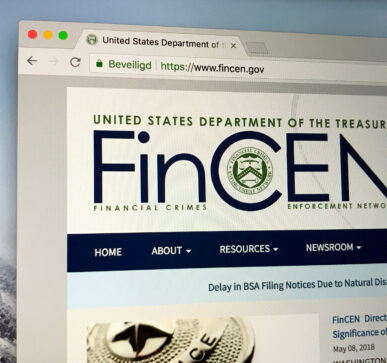On August 28, 2024, FinCEN Final New Rules were published that address vulnerabilities in the U.S. financial system and are part of an on going effort to combat illicit finance and protect U.S. national security, as well as closing loopholes in sectors that facilitate corruption, fraud and narcotrafficking. FinCEN Final New Rules are two rules that are part of the U.S. Strategy on Countering Corruption which aims to: “curb corruption and its deleterious effects”. Under the U.S. Strategy on Countering Corruption, “the U.S. Government will organize its efforts around five mutually reinforcing pillars of work: Modernizing, coordinating, and resourcing U.S. Government efforts to fight corruption; Curbing illicit finance; Holding corrupt actors accountable; Preserving and strengthening the multilateral anti-corruption architecture; and Improving diplomatic engagement and leveraging foreign assistance resources to advance policy goals.” The FinCEN Final New Rules target the following sectors:
- Residential Real Estate: there needs to be an increase in transparency and a limit to the ability of illicit actors to anonymously launder illicit proceeds through the American housing market, and bolster law enforcement investigative efforts.
- Investment Advisers: there is a need to address the uneven application of AML/CFT requirements across this industry.
FinCEN Final New Rules will assist FinCEN, and its law enforcement partners root out bad actors taking advantage of the U.S. financial system as discussed by Director Gacki
During the FIBA’s (Financial and International Business Association’s) annual anti-money laundering conference held from March 18, 2024, to March 21, 2024, in Miami, Florida, Director Gacki from FinCEN discussed regulatory expectations and best practices to prevent financial crimes in a fireside chat. Enhancing transparency in the U.S. financial system continues to be a top priority for FinCEN.
Extracts from Highlights of Final Residential Real Estate Rule effective 12/1/25
- Reporting persons performing specified closing or settlement functions in certain reportable transfers of residential real property to report specified information to FinCEN about the transfer.
- Transfers are reportable when they meet the following criteria: (1) the property is residential real property; (2) the transfer is non-financed; (3) the property is transferred to a legal entity or trust, and (4) an exemption does not apply.
- Transfers meeting the rule’s requirements must be reported regardless of purchase price or the value of the property.
- Gift transfers are subject to the rule.
- Reporting person is determined by one of the following ways: Reporting cascade or Real estate professionals decide.
- Reporting person must provide information about the transfer of residential real property identifying the following: reporting person; legal entity (transferee entity) or trust (transferee trust) receiving ownership of the property; beneficial owners of the transferee entity or transferee trust; certain individuals signing documents on behalf of the transferee entity or transferee trust during the reportable transfer; transferor (e.g., the seller); residential real property being transferred; and total consideration and certain information about any payments made.
Extracts from Highlights of Final Investment Adviser Rule effective 1/1/26
- Adds certain registered investment advisers (RIAs) and exempt reporting advisers (ERAs) to the definition of “financial institution” under the regulations that implement the Bank Secrecy Act (BSA).
- Prescribes minimum standards for anti-money laundering and countering the financing of terrorism (AML/CFT) programs to be established by such RIAs and ERAs.
- Requires RIAs and ERAs to report suspicious activity to FinCEN and makes other related changes to FinCEN’s regulations that implement the BSA.
- Filing certain reports, such as Suspicious Activity Reports (SARs) with FinCEN.
- Keeping certain records, such as those relating to the transmittal of funds (i.e., comply with the Recordkeeping and Travel Rules).
- Fulfilling certain other obligations applicable to financial institutions subject to the BSA and FinCEN’s implementing regulations, such as special information sharing procedures.
Are you receiving Corporate Governance Guidance? What are your Best Practices to Prevent Financial Crimes? Will you be ready for FinCEN Final New Rules?
Establishing and maintaining a reasonably designed BSA/AML and CFT compliance program is essential. A Financial Institution’s risk assessment process and ensuring that it is adequately resourced is critical to an effective well-designed corporate compliance program. Financial Institutions can no longer afford to underfund hiring and training in any compliance area. Make sure you have enough resources budgeted and allocated. Who is your Corporate Governance Expert? ©


